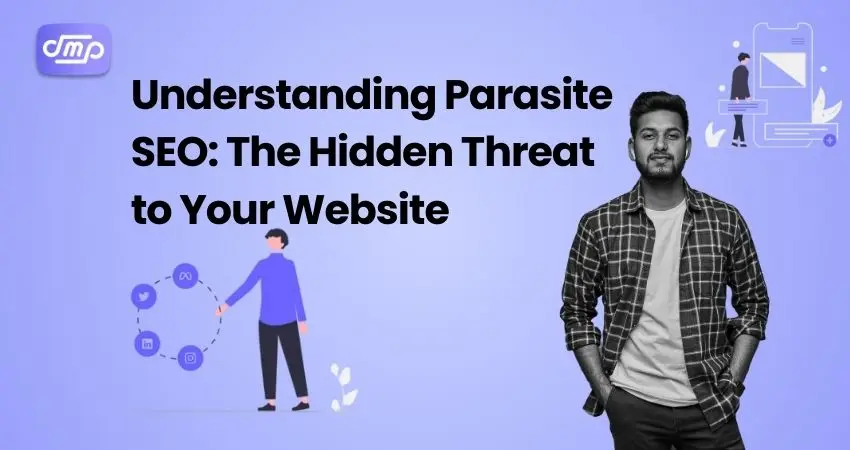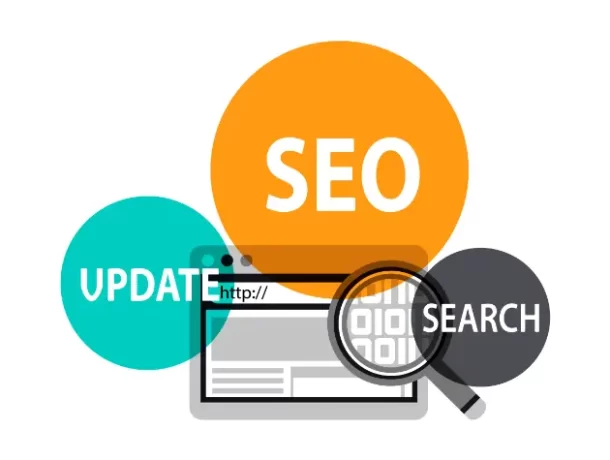
- July 4, 2024
- Digital Marketing, seo
- Search Engine Optimisation (SEO)
Table of Contents
Malicious users use parasitic SEO, a form of black hat SEO, to rank their own material by taking advantage of the legitimacy and authority of trustworthy websites. This technique entails breaking into or hacking a well-known website in order to host unapproved content or links, frequently without the owner’s awareness. In order to influence search engine rankings and direct users to any attacker’s content—which is typically spammy or fraudulent in nature—these malicious pages are tailored for particular keywords.
Affected websites face serious risks from parasite search engine optimization, such as:
- Loss of Search Rankings: A website’s search rankings may suffer if it contains spammy or pointless material.
- Security Vulnerabilities: Malicious user infiltration suggests possible security flaws that could be further exploited.
- Reputational harm: Allowing unapproved content to be hosted on a website can damage its standing and reduce user confidence.
Importance of Understanding and Addressing Parasite SEO

It’s essential to comprehend and handle parasite SEO for a number of reasons:
- The search engine rankings of your website can be significantly impacted by parasite SEO. Unauthorized content might make your website look spammy or irrelevant, which can lower your ranking positions and result in fines from search engines.
- Attacks by parasite SEO frequently take advantage of security holes in your website. You may prevent unwanted access and possible data breaches by identifying and repairing security weaknesses by being aware of these threats.
- Your reputation could be harmed by a compromised website that hosts dangerous or irrelevant content. Customers and visitors to your website can stop trusting it, which could harm the credibility of your brand and result in a decline in sales.
- Traffic declines due to parasite SEO can have a direct impact on your income. Furthermore, the aftermath of an attack can be expensive due to the need for cleanup and possible legal costs.
- Making sure your website follows SEO best practices is made easier with an understanding of parasite SEO. It enables you to proactively protect your SEO strategy from black hat tactics while preserving its integrity and caliber.
- A website that is reliable and safe to use offers a better user experience. By taking care of parasite SEO, you make sure that your visitors have a dependable and safe experience, which promotes return business and client loyalty.
- The threats posed by SEO are always changing. Keeping up with Parasite SEO will allow you to modify your security protocols and SEO techniques to fend off such assaults and keep a competitive advantage.
- Protecting the security, reputation, and search engine rankings of your website requires an understanding of and attention to parasite SEO. You can safeguard your online presence from these sneaky attacks by taking preventative action and developing a strong defensive plan
Common Techniques Used in Parasite SEO
In order to influence search engine results and take advantage of high-authority websites, parasitic SEO employs a variety of black hat approaches. The following are some typical methods that attackers employ:
Infiltration and Hacking
- To obtain unauthorized access, attackers locate and take advantage of security flaws on websites.
- Unauthorized content or links are created by injecting malicious code into the website’s pages or server after access is obtained.
Making Unauthorized Pages
- In order to manipulate search engine rankings, attackers establish hidden pages on hijacked websites that are optimized for particular keywords.
- To promote the attacker’s website or goods, these sites frequently have spammy material that is overflowing with keywords and backlinks.
Insertion of Links
- Adding backlinks that go to the attacker’s website or other malicious stuff within the text of the hacked site further harmful web pages.
- Fabricating networks of connected pages from several hacked websites in order to artificially raise search engine ranks.
Content Theft
- Presenting users and search engines with distinct material. While people are routed to spammy or malicious websites, search engines view content that has been tailored for keywords.
- Keyword stuffing is the practice of stuffing content with so many keywords that it becomes irrelevant to users or nonsensical in search results.
Hacking of Domains
- Taking over high-authority domains that have expired and utilizing them to host spam or build backlinks is known as “expiration of domains.”
- Subdomain exploitation is the practice of invading a website’s authorized subdomain in order to host malicious content.
Social Engineering and Phishing
- When phishing pages are hosted on hacked websites, user passwords or private data is stolen.
- By using misleading techniques, users are tricked into granting access or sensitive information.
Changing Schema Markup and Metadata
- Changing meta descriptions, titles, and tags to mislead users and search engines about the content of the sites.
- Search engines’ interpretation and display of a website’s content can be manipulated by using fake structured data, or fake Schema Markup.
Ways to Protect Yourself from Parasite SEO

- Frequent evaluations of security: Perform regular security audits to find and address weaknesses in your website.
- Strong Authentication: Give each user account a strong password and enable two-factor authentication.
- Monitoring and Alerts: Keep an eye out for any illegal changes or strange activity on your website by using monitoring tools.
- Content Integrity: Continually monitor the content of your website for illegal additions or changes.
- Teach Your Group: Teach your staff the warning signs and hazards, and various other online dangers, such as parasitic SEO.
Impact of Parasite SEO on Your Website
Your website may suffer greatly from parasite SEO, which can have an effect on everything from user confidence to search engine rankings. The following are the main effects:
Decline in Search Engine Rankings
- In order to make a website more relevant and authoritative for your desired keywords, parasitic search engine optimization frequently entails the production of spammy content or pages tailored for particular keywords.
- Search engines may apply penalties, which might lead to a sharp decline in ranks or possibly the de-indexing of your website if they find spammy or malicious information on it.
Diminished Natural Source Traffic
- Your site will be less visible as a result of lower search engine ranks, which will decrease organic visitors.
- Users may be sent to fraudulent or spammy websites, which can further diminish your visits to your website even further.
Reputational Harm To a Website
- Allowing unsanctioned or malevolent content to be hosted can damage users’ trust. Visitors could think your website is unreliable or dangerous.
- The reputation of your website may be harmed by users who come across spammy content and give unfavorable reviews or feedback.
Vulnerabilities in Security
- Exploiting security weaknesses is a common component of parasitic SEO. This can result in further security lapses, such as data theft or site hijacking, in addition to permitting illegal content to be posted on your website.
- When vulnerabilities are taken advantage of, your website becomes more vulnerable to additional cyberattacks, which raises security concerns.
Monetary Losses
- A drop in conversions may be caused by a decrease in traffic and user trust. a drop in sales and conversions affects your revenue directly.
- Recovering from a Parasite SEO attack can be expensive, requiring investments in improved security measures, technological remedies, and sometimes even legal fees.
Consequences for Law
- You may be held legally liable if you host malicious content, even unintentionally. Any harm brought about by the content hosted on your website could land you in legal hot water.
- A compromised site may breach regulations, resulting in fines or other legal ramifications, depending on your sector.
Effect on the User's Experience
- Lower engagement and increased bounce rates might result from spammy or irrelevant content, which can harm the user experience as a whole.
- Unwanted pop-ups and redirection can annoy users even more. pop-ups or redirection, which aggravates users even more and decreases the chance that they will return.
Detecting Parasite SEO
Finding Parasite SEO can be difficult, but it’s essential to safeguard your website from negative effects. Here are several techniques and indicators to look out for when spotting parasite SEO:
- To find any unexpected or illegal modifications, regularly audit the backlinks, content, and overall performance of your website.
- Make use of tracking tools that can identify modifications to backlink profiles, traffic trends, and website content. Create alerts for any questionable activity.
- Use Google Search Console to keep an eye on security alerts and the functionality of your website. Keep an eye out for odd fluctuations in search volume and alerts about security breaches.
- Analyze the backlink profile of your website on a regular basis with Majestic, Ahrefs, and SEMrush. Keep an eye out for unexpected hikes in backlinks originating from questionable or unrelated domains.
- Check the content of your website for any unapproved or unnecessary pages. Look for pages that don’t fit the theme of your website, hidden text, or content that is overly optimized for keywords.
- Track the origins and trends of traffic to your website. Unusual traffic increases from foreign countries or sources could be a sign of a parasite SEO attack.
- Use security tests to examine your website for weaknesses and unapproved entry points.
- Unexpected spikes in traffic originating from non-targeted sources. Considerable declines in the search engine ranks for the terms you’ve chosen.
- Unauthorized pages or material that appear on your website, frequently contain irrelevant or keyword-stuffed content.
- Alerts regarding security flaws or manual activities that are displayed in the Google Search Console or other search engine tools.
Recommended Tools and Services
The following tools and services are suggested for preventing and mitigating Parasite SEO attacks, improving website security, and efficiently managing your SEO efforts:
- Wordfence Security: Wordfence Security is a WordPress security plugin that offers firewall protection, malware scanning, login security, and real-time threat defense.
- Sucuri: Provides a range of website security solutions, including malware eradication, DDoS protection, website firewalls (WAF), and security monitoring.
- SiteLock: Provides a web application firewall, malware eradication, vulnerability patching, and website security scanning.
- Cloudflare: Content delivery network (CDN) with integrated security features including DDoS protection, WAF, and SSL/TLS encryption is offered by Cloudflare.
- Wordfence Central: Wordfence-based centralized administration, comprising security monitoring and threat notifications, for numerous WordPress websites.
Tools for Monitoring and SEO
- Google Search Console: Keep an eye on the functionality of your website in Google’s search results, identify problems, and get security issue notifications.
- Ahrefs: Offers tools for monitoring backlinks and enhancing SEO performance, including backlink analysis, keyword research, content analysis, and site audits.
- Moz Pro: Provides tools for rank tracking, backlink analysis, site audits, and keyword research to maximize SEO efforts and keep an eye on the health of websites.
- SEMrush: Provides backlink audits, competitive analysis, keyword research, rank tracking, and site health monitoring tools for search engine optimization.
- Google Analytics: Monitor site health and optimize marketing efforts by tracking user activity, website traffic, and performance data.
Conclusion
Maintaining website security and preserving search engine rankings require an understanding of and attention to parasite SEO. The integrity of your online presence and protection against these threats depends on effective detection, prevention, and mitigation techniques.











